Behind the News
Behind the News: All the backstories to our major news this week
Published
6 months agoon
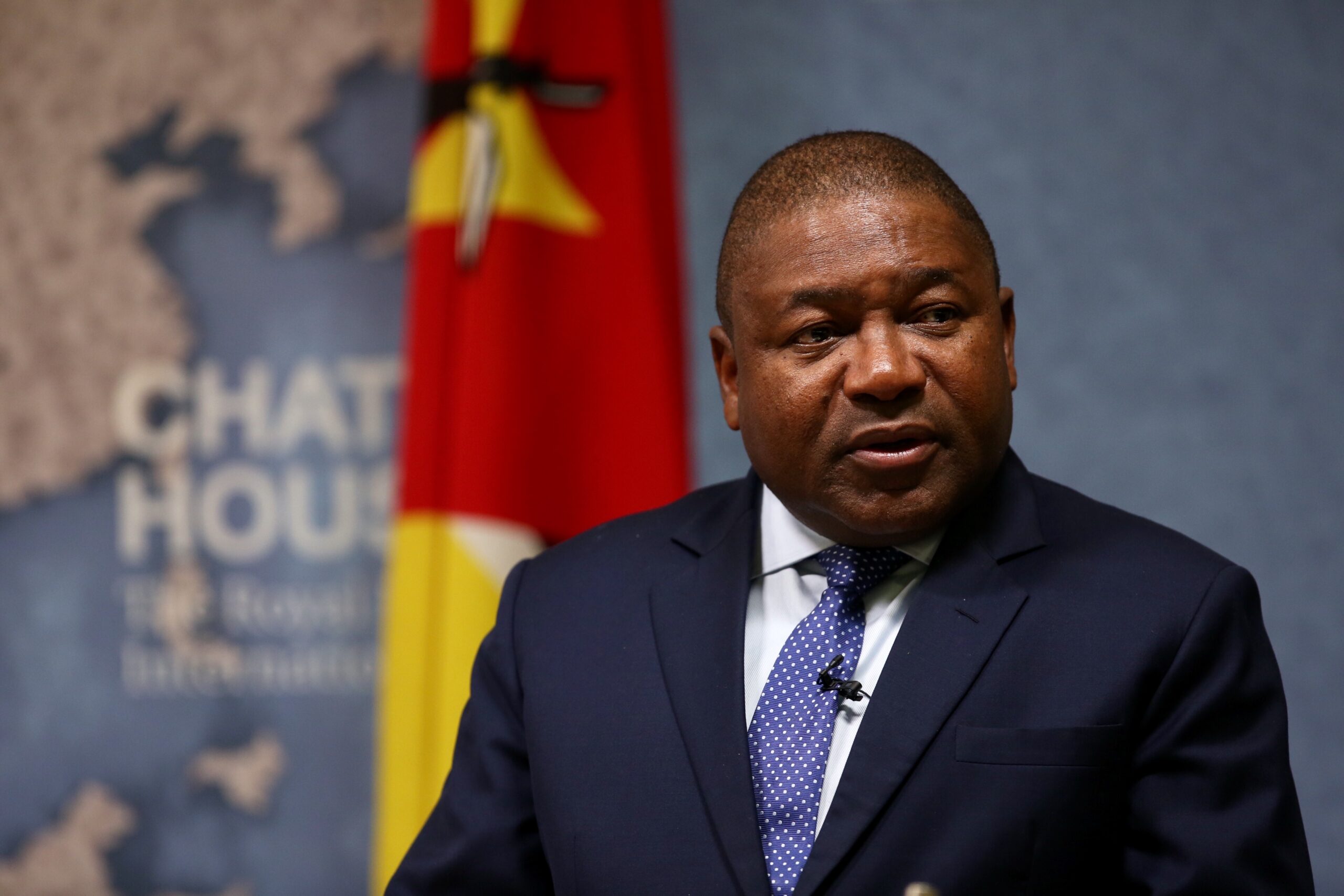
Over the past week, there were many important stories from around the African continent, and we served you some of the most topical ones.
Here is a rundown of the backstories to some of the biggest news in Africa that we covered during the week:
Finally, Nigeria’s Bola Tinubu seals legal validation as president
On Thursday, Nigeria’s Supreme Court settled the prolonged legal disputes around the country’s president as it affirmed the decision of the tribunal dismissing the appeals of opposition candidates, Atiku Abubakar and Peter Obi, and upholding the election of President Bola Tinubu.
In a final attempt to overturn the election result, Abubakar and Obi urged the Supreme Court to dismiss a tribunal ruling on September 6 that upheld Tinubu’s victory. Their attorneys argued before the Supreme Court that the lower court erred in holding that the electoral agency’s pre-election guideline to electronically transmit polling place results was not a mandatory requirement.
The court, in its lead ruling, which was delivered by Justice John Okoro, rejected the Peoples Democratic Party’s (Abubakar’s) and the Labour (Obi’s) appeals contesting the ruling of the presidential election petition tribunal. The panel also concurred with Okoro’s decision to deny Atiku’s application to tender Tinubu’s CSU credentials as fresh evidence.
Even before the recent elections, the Nigerian president had long been surrounded by a cloud of controversy over his past, particularly related to his family, education, and business backgrounds.
Since the beginning of the current Fourth Republic in 1999, after years of military dictatorship, elections in Nigeria have been marred by controversy and violence, generating legal petitions. All presidential elections between the 1999 and 2023 exercises have ended up at the apex court except in 2015, when immediate past president Mohammadu Buhari defeated then-incumbent President Goodluck Jonathan.
More musings from the United States about Africa
During the week, a senior United States trade official, Constance Hamilton called for reforms to the country’s flagship trade initiative with Africa, claiming that it would increase its impact as part of a potential reauthorization by Congress.
The official, who is the Assistant United States Trade Representative for African Affairs, told journalists ahead of a meeting of US officials and African trade ministers in South Africa next week about the need for an improved strategy in US relations with Africa. “We need to do better”, she said.
The African Growth and Opportunity Act (AGOA), which was introduced in 2000, allows exports from eligible nations duty-free access to the American market. Although talks about whether and for how long to extend it are already underway, it is scheduled to expire in September 2025.
According to research, AGOA has aided in the creation of jobs and the reduction of poverty in some nations, especially for women. Nevertheless, from 2014 to 2021, more than 75% of duty-free non-petroleum exports to the US under the programme originated in just five nations: South Africa, Kenya, Lesotho, Madagascar, and Ethiopia.
Also, during the week, the US Senate rejected legislation seeking to have President Joe Biden withdraw American troops from Niger Republic.
Along with its push to reinforce its interest in Africa, Washington has been strongly involved in the battle against Islamist terrorists who have murdered hundreds and uprooted millions more in Africa, with its Department of Defence employing over 1,000 people nationwide.
In the last ten years, American forces have run two military camps in Niger, one of which is used to launch drone attacks on the Islamic State and an Al Qaeda offshoot in the area, and the other to train Nigerien forces in counterterrorism.
Washington is keen on regaining its waning influence amid an effort to highlight the region’s significance and combat any threats China and Russia may pose to American interests in this significant area.
Another Nigerian athlete in doping mess
Nigeria may be having an expanding doping scandal on its hands as another of its athletes, Grace Nwokocha has been banned for three years after she failed a drug test at the Birmingham 2022 World Championships.
As a result, the World Athletics Federation also stripped Nigeria of the
Commonwealth Games relay gold medal which Nwokocha was a part of.
In a statement announcing the ban on Friday, the AIU said the 100m and 200m athlete was banned for the “Presence/Use of Prohibited Substances Ostarine and Ligandrol.”
Two weeks ago, Nigerian sprinter, Divine Oduduru was also slammed with a six-year ban for two doping violations, including possession of prohibited substances and attempted use of a prohibited substance or method.
Another, former African 100m champion, Blessing Okagbare, was banned for 11 years for doping in 2022.
Beyond the short-distance track and field categories dominated by Nigerians, East Africans— especially Kenyans and Ethiopians— who have dominated long-distance races for decades, have also had athletes like 10 kilometres road race world record holder, Rhonex Kipruto, Betty Wilson Lempus and 800m specialist, Eglay Nalyanya, amongst others, banned, leaving a disturbing and damaging effect on the continent’s sporting image.
Mozambique’s ‘tuna bond’ scandal hits another high note
Mozambique’s President, Filipe Nyusi is now at the centre of the country’s “tuna bond” scandal as the owner of Emirati-Lebanese shipbuilder, Privinvest, Iskandar Safa, told London’s High Court that he was ultimately responsible for the failure of the projects at the centre of the “tuna bond” scandal.
The scandal’s notoriety began with the borrowing of $2.2 billion by three newly formed firms in 2013 and 2014, the majority of which was done without the legislature’s knowledge or authorization. Mozambique alleges that Privinvest and Safa conspired against it and distributed more than $130 million in bribes to dishonest government officials and Credit Suisse employees.
The “hidden debt” or tuna bond issue has sparked criminal investigations from Maputo to New York, as well as a string of related litigations in London involving Credit Suisse, Privinvest, Safa, and many other parties.
Safa, in his written witness statement, as he gave evidence by videolink from Paris, said, “Privinvest does not pay bribes, full stop,” and blamed the failure of the projects on Nyusi, whom he said “wanted the projects to fail” to undermine his predecessor, Armando Guebuza’s political authority.
The main focus of the accusations against Nyusi was the $11 million in payments that they said Privinvest made in 2014 to help Nyusi and his Frelimo party, which is presently in power, win elections. Privinvest and Safa said he ought to bear the financial burden of any reparations they could have to pay Mozambique in the event of a conviction.
You may like
-
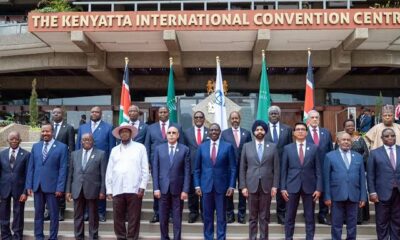

Behind the News: All the backstories to our major news this week
-


FX bank swaps account for 30% of Nigeria’s external reserves— Fitch
-


Nigeria: Civil society group sues 36 govs, Wike over N5.9tn, $4.6bn loans
-


Nigeria offers oil majors faster exit if …
-
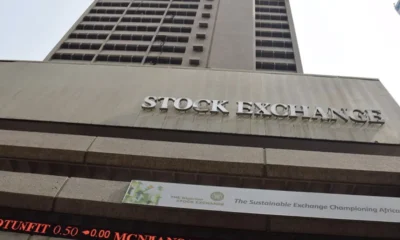

Nigeria’s Security Exchange chief to meet foreign, local crypto exchanges, others over crypto regulation
-
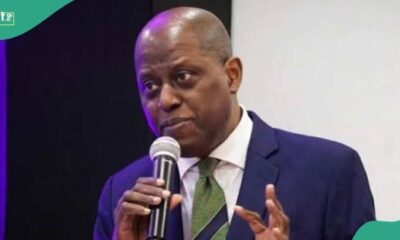

Nigeria’s central bank blames food inflation on govt’s purchase of palliatives
Behind the News
Behind the News: All the backstories to our major news this week
Published
17 hours agoon
May 5, 2024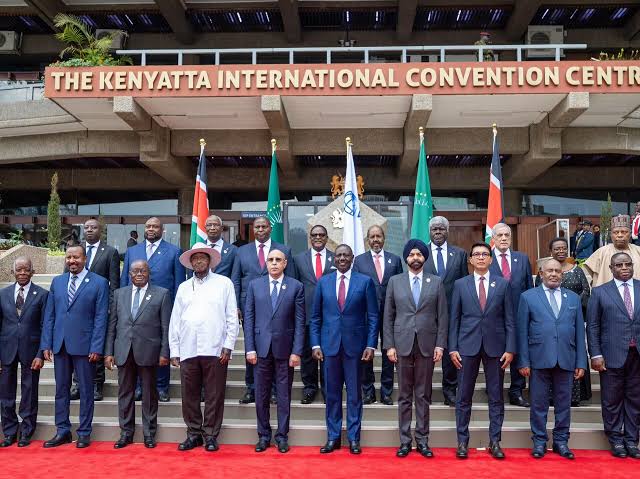
Over the past week, there were many important stories from around the African continent, and we served you some of the most topical ones.
Here is a rundown of the backstories to some of the biggest news stories in Africa that we covered during the week:
Different takes as African leaders spotlight multilateral loans
The call for a reform in the financial instrument of multilateral bodies like the International Monetary Fund (IMF) and the World was at the front burner in the week as African leaders on Monday called for rich countries to commit to record contributions to a low-interest World Bank facility for developing nations. The leaders stressed that most African countries depend on the fund to sponsor development and combat climate change.
Kenya’s President William Ruto told a meeting of African leaders and the World Bank to discuss IDA funding, “call on our partners to meet us at this historic moment of solidarity and respond effectively by increasing their IDA contributions… to at least $120 billion.”
Ruto has been a notable voice in the call. Last year, during a session at the Paris Climate Summit, he called for a new global financial architecture outside the present creditor system which according to him tilts in favour of lenders like the IMF and the World Bank.
“We need a financial consumption tax at a global level that countries like Kenya pay, we do not want anything for free, we will pay more eventually because we have a bigger economy. We want those resources controlled not by IMF and World Bank because IMF and World Bank have the final say…,” Ruto said.
The World Bank has maintained that IDA lends money to 75 poor countries around the world at low-interest rates. More than half of these countries are in Africa. Governments use the money to improve access to healthcare and energy, put money into farms, and build important things like roads.
But Ugandan President, Yoweri Museveni, expressed a fresh perspective to the discourse at the same event as he urged African leaders to verify the true intentions of multilateral lending institutions towards the continent. He asked African leaders to “audit the intentions of the World Bank loans to ensure that they are for prosperity rather than profiteering”. He added: “What loans are we getting as Africa? Is the World Bank giving us loans for private sector-led growth or to be more dependent?”
“Our populations are increasing, but our economies are stunted. The International Development Association (IDA) should tell us why they are funding the modern slavery of Africans, and we should address issues like why Africa is producing what it does not consume and consuming what it does not produce”, the Ugandan leader stated.
Interventions by multilateral bodies have remained controversial in some cycles although the bodies have claimed that poverty reduction is one of their objectives, but some studies have shown that IMF borrower countries experience higher rates of poverty. A 2022 research by Glen Biglaiser and Ronald J. McGauvran which investigated the effects of IMF loan conditions on poverty using a sample of 81 developing countries from 1986 to 2016, found that IMF loan arrangements containing structural reforms contribute to more people getting trapped in the poverty cycle, as the reforms involve deep and comprehensive changes that tend to raise unemployment, lower government revenue, increase costs of basic services, and restructure tax collection, pensions, and social security programmes.
Liberia enacts war crimes court; who should follow?
Liberia’s President Joseph Boakai has signed an executive order to establish a war crimes court. Boakai granted his final approval and congratulated the lawmakers for their effort in the legislation. A special court was eventually ordered to be established to try those who were deemed to be at fault by the Truth and Reconciliation Committee.
Many atrocities, such as rape, massacres, and the use of child soldiers, occurred during the wars that lasted from 1989 to 2003. In their fight against rebels affiliated with the Liberians United for Reconciliation and Democracy (LURD), government forces in Liberia have been accused of war crimes as well as grave violations of human rights, such as the widespread rape of women and girls, the summary execution of numerous civilians, and the looting and burning of entire villages.
Without warning or predetermined protocol, hundreds of civilians were allegedly arbitrarily and forcibly conscripted and deployed to fight on the front lines, frequently with little to no military training. The LURD troops have also been alleged to have committed grave crimes such as rape, forced recruitment of civilians, including child soldiers, and summary killings of suspected government collaborators.
Activists and civil society organizations that have demanded greater justice for crimes committed during the conflicts that claimed the lives of almost 250,000 people have praised the initiative. Some in Liberia are against its development, arguing that it could weaken the amnesty law that was already in place and cause old grievances to resurface. This helped put a stop to the violence.
Most African countries have a shared history of civil wars and internal crises that have made calls for special courts to try war popular in the continent. Nigeria, Rwanda, Ethiopia, Sudan, Congo DR have recorded thousands of deaths of civilians occurring in separate conflicts of armed groups. Some of those killings are also categorized as war crimes and crimes against humanity, with most cases unsolved and consequential agitations in cases for self-determination and secession by aggrieved section of the state, which account for the volatile nature of most African states.
Liberia’s template which has birthed a special war crimes court might be a direction to follow in states with these experiences, first to afford victims closure through justice and likely deterrent for likely war crime offenders but much still lies on the political will of the state to ensure justice despite the special court.
Scrabble for Niger as US accuses Russia over military base incursion
Despite remaining under military reign and retaining consequent pariah status in the international community, West African country, Niger Republic, appears to remain a toast for world powers as the United States and Russia had their latest confrontation over the country during the week. Russian military personnel have reportedly made their way into an American military air base in Niger, according to a senior US defence official cited by Reuters. This move follows the junta in Niger’s decision to expel American personnel.
Until a coup last year, the country had been a vital ally for Washington’s fight against insurgents who had killed hundreds of people and displaced millions more. Mali, Libya, Chad, the Central African Republic, and other nations on the continent have looked to Russia for security cooperation. Russian paramilitary soldiers have now landed in Niger, isolating the United States and compelling its 1,100 military personnel to leave the country for the next few months.
America will lose access to a vital military facility it needs to combat terrorist organizations like ISIS as a result of Russia’s increasing influence in Niger. To strike terrorist bases in the area, intelligence gathered from the U.S. drone base in Niger is crucial. In what global politics observers have labelled a “failed strategy” Cameron Hudson, a former intelligence officer for Africa at the CIA, referring to countries with coup governments in Africa noted that “when all of these countries kicked out the French and turned inward, we then tried to pivot to become the peacemaker in the hopes that we could keep our presence there.” “All of that is not working. We are now out. Russia is now in.”
According to US law, Washington is not allowed to give money to coup regimes like the one in Niger. However, in an attempt to eventually restore military and other financial support, American leaders have made an effort to retain diplomatic ties with those nations, many of which have abundant natural resources.
A few African leaders have praised Moscow’s participation, arguing that in situations where the United States is unable to offer prompt security support, Moscow can. Some have resisted American efforts for reform, arguing that the West has no right to preach democracy in Africa when it ignores comparable problems with its friends elsewhere in the world.
On Africa and long-distance race at the Olympic
Ahead of the 2024 Summer Olympic Games in Paris, France, Athletics Kenya named their six-man team on Wednesday. The team consists of three men and three women, with one reserve on each side. The team is led by Hellen Obiri, Benson Kipruto, and Eliud Kipchoge, the reigning champions. A “killer squad” the team has been called by sports enthusiasts giving the track record of the East African country at long-distance races. Kenyan and regional neighbours Ethiopian athletes have dominated the middle- and long-distance sports since the 1968 Mexico City Olympics. They have also shown a similar level of dominance in international cross-country and road racing competitions.
Benson Kipruto, the winner of the Tokyo Marathon, and Alexander Mutiso, the winner of the London Marathon, are both picked in the final Kenyan Olympic team. Timothy Kiplagat, the runner-up in Tokyo, will be backup in case any of the three chosen athletes are unable to compete. As she travels to Paris in fine form, having set a new women’s only world record last month by winning the London Marathon, Jepchirchir will have an opportunity to defend her championship with the final team list.
Their success has attracted significant attention on a global scale and has been the focus of social, sporting, and even scholarly studies. Genetic predisposition, development of high maximal oxygen consumption as a result of extensive walking and running at an early age, and comparatively high haemoglobin and hematocrit were some of the factors identified by Randall L. Wilber and Yannis Pitsiladis.
Developing a good metabolic “economy/efficiency” based on somatotype and lower limb characteristics, having an advantageous oxidative enzyme profile and skeletal-muscle-fiber composition, living and training at altitude, following a traditional Kenyan/Ethiopian diet, and having the drive to succeed economically are additional factors. However, although the variety of physiological and anatomical explanations appear tenable for the dominance, no definitive advantage has been found through research as athletes from other parts of the world like Asia and North America with little or no features peculiar to East Africa have had considerable success in long-distance also.
East Africa will continue counting its medals with pride while the search continues.
Behind the News
Behind the News: All the backstories to our major news this week
Published
1 week agoon
April 28, 2024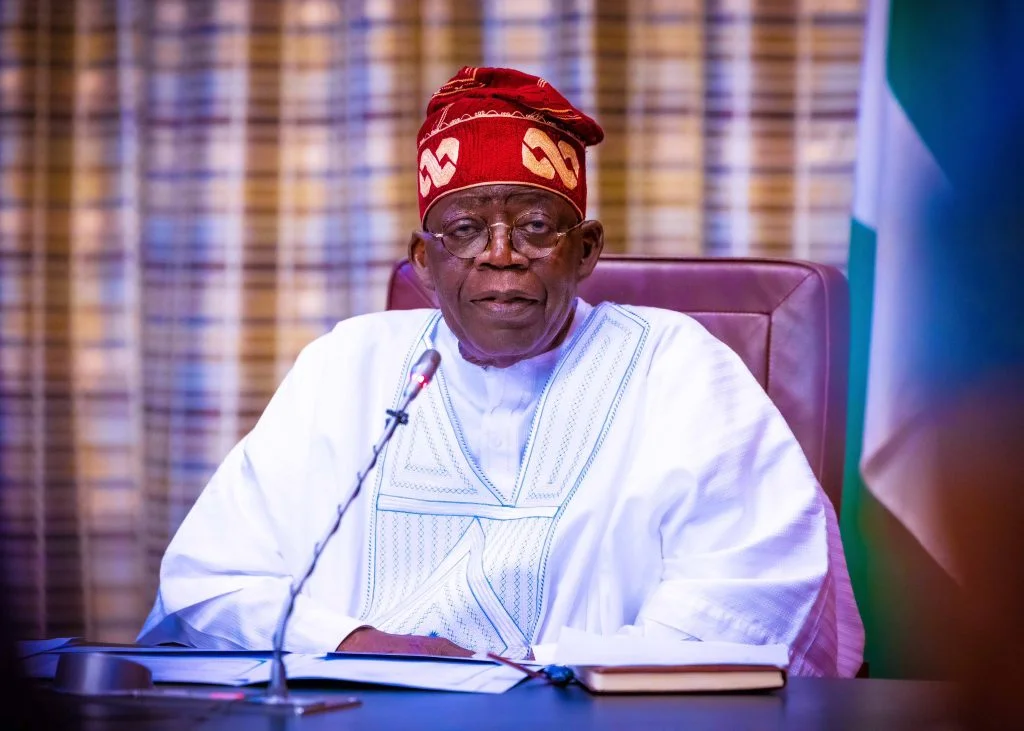
Over the past week, there were lots of important stories from around the African continent, and we served you some of the most topical ones.
Here is a rundown of the backstories to some of the biggest news in Africa that we covered during the week:
1. Renewed Hope: Tinubu’s regular sing-song and the sad reality of Nigeria
During the week in review, Nigeria’s President Bola Tinubu was once again at his rhetorical best when he pronounced the all the tough policy decisions and reforms he has undertaken since coming into office almost a year are have been in the best interest of Nigerians and the good of the country.
Tinubu who spoke during a bilateral business session with Dutch Prime Minister Mark Rutte at the Hague in the Netherlands, said every of his decisions were taken with the interest of his fellow citizens at heart.
He reiterated that his policies which have caused pains and anguish for Nigerians were in their best interest.
“I am a determined leader of my people. I am ever ready to take tough decisions in the best interest of the people, even if with initial pains,” Tinubu said.
“I have and will continue to take the difficult decisions that will benefit our people, even if there is short-term pain,” he added.
But beyond the regular promises of better days ahead by Tinubu and his team, the reality on ground in the country does not seem to align with so much optimism.
The first sign that things were going to be tough was when Tinubu pronounced the end of fuel subsidy in his inaugural address to the nation on May 29, 2023, without as much of a plan to ameliorate the anticipated economic crisis that was to follow.
Despite later attempts to provide some succour and buffers to cushion the effects of the subsidy removal, things have gone from bad to worse with the cost of living rising through the roof.
Inflation has gone up to an all time high of 30.20% according to the Nigeria Bureau of Statistics while prices of basic goods have gone beyond the reach of the average Nigerians, many who find it difficult to provide for their families.
But to President Tinubu, the pains and hardship Nigerians are currently going through will soon be a thing of the past because, according to him, his “tough policies” would yield positive results in the end.
“We have gone through the worst of the storms. I am unafraid of the consequences once I know that my actions are in the best long-term interests of all Nigerians,” he posited.
Nigerians are indeed waiting patiently for the fulfilment of these promises and are looking forward to a time they will go back to living a normal life again!
2. Discriminatory Chinese supermarket meets its match as Nigerian govt shuts mall
A Chinese supermarket located in the heart of Abuja, Nigeria’s capital, ran into hot water when the Federal Competition and Consumer Protection Commission (FCCPC), shut it down following allegations of discrimination against Nigerian shoppers.
Before the action of the government agency, a report had indicted that the supermarket located within the premises of the China General Chamber of Commerce in Abuja, was in the habit of barring Nigerian citizens from shopping in the mall.
Following the exposè which came with video evidence and investigations carried out by the FCCPC turned out to be true, officials of the agency promptly moved in and shut down the mall.
Director for Surveillance and Investigation of FCCPC, Boladale Adeyinka, who led the team, said they took the action was in response to a viral video showing Nigerians being discriminated against and not being able to get into an Abuja supermarket.
“The essence of the surveillance and investigation that we conducted today is to verify the allegations and the content of that viral video,” she told journalists during the exercise.
That was not the first time foreign business ventures have discriminated against Africans in their own country by refusing them their services.
A few years ago, a Chinese restaurant in Lagos was in the news for refusing to serve a Nigerian couple and it took the intervention of the state government for normalcy to return to the outfit after some Nigerian youth decided to vent their anger on the eatery.
Many Chinese, Lebanese and other companies run by foreigners in Nigeria have been found to discriminate against their Nigerian staff and customers but as usual, the powers that be have always turned a blind eye to such allegations, largely because the business owners have their plugs in the right places while the victims are always at the lower rung of the society.
3. Runaway Binance executive reportedly nabbed in Kenya
It was reportedly a bad day in the office for an executive director of global cryptocurrency firm, Binance Holdings Limited, Nadeem Anjarwalla, who had escaped from lawful detention in Nigeria, as he was arrested in Kenya.
Anjarwalla, a British-Kenyan citizen was arrested on arrival in Nigeria on February 26, along with another Binance official, Tigran Gambaryan, on allegations of tax evasion, money laundering and other charges.
But on March 22, Anjarwalla made an audacious escape from a guest house where he and Gambaryan were being held and was promptly declared wanted with the Nigerian authorities engaging the services of Interpol to help track him down.
The manhunt for Anjarwalla was ended when he was arrested in his hideout by a combination of Kenyan police and operatives of the Interpol.
The Kenya Police Service, in a statement confirming the arrest of the fugitive, said the fleeing Binance executive was arrested in “conjunction with the International Criminal Police Organisation (Interpol) and moves were being perfected for his extradition to Nigeria.
But beyond the arrest of Anjarwalla and the embarrassment it caused the country’s security agencies, a lot of questions have arisen from the episode.
Many Nigerians have continued to wonder how he managed to escape from the so-called safe house he and his colleague were being held.
How could Anjarwalla stage such an escape without the active connivance of some security officials who must have had their palms greased?
How did he manage to get a replacement passport to leave the country since his original passport had been seized by the Economic and Financial Crimes Commission upon his arrest?
Questions, and more questions have continued to rise and Nigerians are waiting for answers, if they will come at all.
4. Zambian CSO blames media polarisation for biased reportage
The Executive Director of a Zambian civil society organisation, Chama Mwansa, has blamed the polarisation of the media for biased coverage and reportage in the country.
Mwansa who is the ED of the Chandarika Women and Youths Foundation, in an interview with Zambia Monitor, said the media was balkanized between private and state-owned media outlets which has led to a bias in news coverage.
“The media plays a crucial role in society. Media freedom allows for comprehensive coverage of various perspectives, whether from the opposition or the ruling party,” she said in the interview.
She also harped on the importance of media freedom, freedom of speech, and digital rights in promoting social and economic development, and emphasized on the importance of media partnerships in facilitating coverage of events.
Mwansa’s observations on the polarisation of the media industry in her country can also be replicated in many African countries where the media is gagged and practitioners are made to look like the dregs of the society.
In many African countries, journalists are seen as dangerous species with many of them treated with disdain. Many journalists in different parts of the continent have been abducted, brutalized and killed for just doing their jobs which have constantly raised the question on the safety and freedom of journalists.
5. Al Ahly, Esperance in clash of titans for CAF Champions League trophy
For the fourth straight seasons, two of Africa’s most successful clubsides, Al Ahly of Egypt and Esperance of Tunisia, will clash in the final of the TotalEnergies CAF Champions League scheduled for next month.
Al Ahly which is the current holders of the title and their long-standing rivals Esperance, booked their places in the final in dramatic fashions to earn their places in the final of Africa’s epic football tournament.
Al Ahly cruised past former champions TP Mazembe of the DRC 3-0 in their two-legged semi final tie, while Esperance defeated another former winner, Mamelodi Sundowns of South Africa, running out with a 2-0 aggregate victory.
Al Ahly, winners of the five of the last seven editions of the CAF Champions League, will be aiming for her 12 trophy when they visit Esperance for the first leg in Rades on May 18, while the Tunisian giants will be gunning for a fifth Champions League title, which clearly puts the two teams as the best in the continent.
The second leg will hold in Cairo a week later, which, on paper, gives Ahly a sense of home advantage.
- But however it turns out, there will surely be fireworks as the two teams battle for the glory in the two-legged final and surely, whichever team comes out tops will be the best for the African continent.
EDITOR’S PICK


Behind the News: All the backstories to our major news this week
Over the past week, there were many important stories from around the African continent, and we served you some of...


Nigerian retail startup Renda secures $1.9m funding to drive expansion
Nigeria’s retail startup, Renda, has announced securing a $1.9 million pre-seed round of equity and debt funding to enable it...
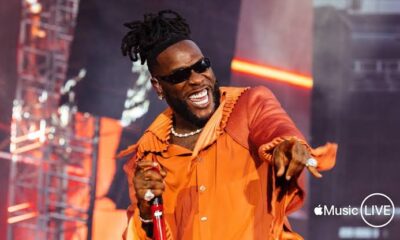

Burna Boy emerges Africa’s top earning artiste in the US from tours, concerts
Nigerian Afrobeats sensation, Burna Boy, has emerged as the first African artiste to stage the highest-grossing arena concerts and tours...
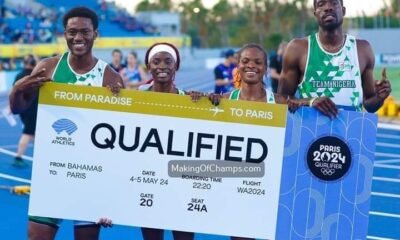

Nigeria’s 4x400m mixed relay, 4×400 teams qualify for Olympics
Team Nigeria on Sunday morning booked two places at the upcoming Paris Olympics Games in the Mixed 4x400m relay and...


FX bank swaps account for 30% of Nigeria’s external reserves— Fitch
Global credit ratings firm, Fitch, has claimed that approximately 30% of Nigeria’s external reserves is comprised of foreign exchange (FX)...


Nigeria: Civil society group sues 36 govs, Wike over N5.9tn, $4.6bn loans
A civil society organisation in Nigeria, Socio-Economic Rights and Accountability Project (SERAP), has dragged the 36 state governors of the...
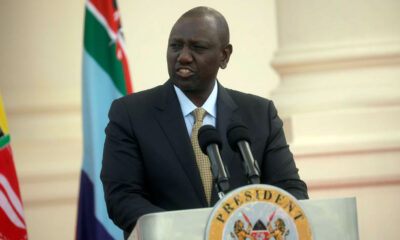

Kenya: President Ruto hints at ‘dire’ weather outlook as Cyclone Hidaya nears
President William Ruto has announced that the severe rains that have been plaguing Kenya for the past several weeks resulting...
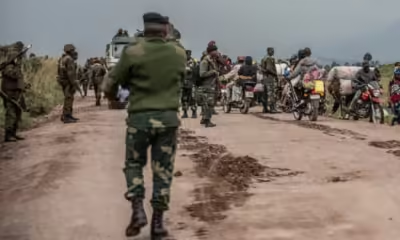

Again, Rwanda denies it attacked displaced persons in DR Congo
For the sixteenth time, Rwanda refuted US charges on Saturday that its troops attacked a camp for internally displaced persons...


Nigeria offers oil majors faster exit if …
Oil-rich West African country, Nigeria, has offered major oil companies, such as Exxon Mobil and Shell, that planned to leave...


Nigeria’s Security Exchange chief to meet foreign, local crypto exchanges, others over crypto regulation
On Monday, local and international cryptocurrency exchanges will meet with Dr. Emomotimi Agama, the recently appointed Director General of the...
Trending
-

 VenturesNow2 days ago
VenturesNow2 days agoNigeria offers oil majors faster exit if …
-
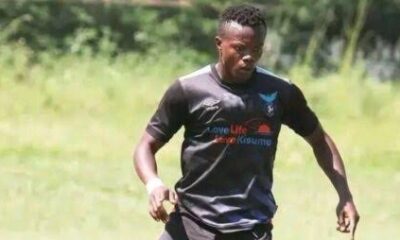
 Sports2 days ago
Sports2 days agoKenyan footballer arrested over brutal robbery, murder case
-
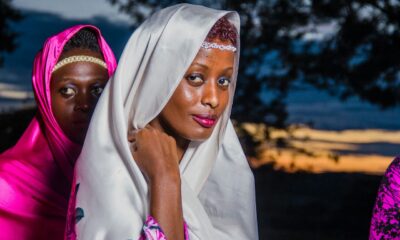
 Culture2 days ago
Culture2 days agoMeet the Ugandan tribe where bride’s aunt must ‘test’ groom’s manhood before marriage
-

 VenturesNow23 hours ago
VenturesNow23 hours agoFX bank swaps account for 30% of Nigeria’s external reserves— Fitch


